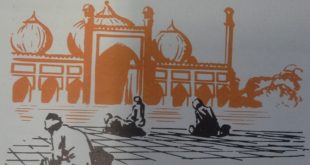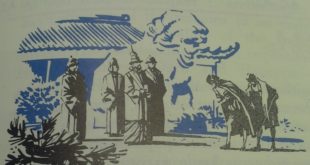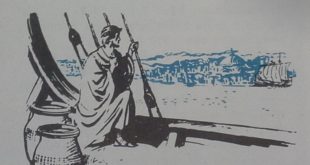Thirteen and a half centuries ago a new religion began in Arabia. Today millions of people are followers of this religion. It is called Islam and its followers, Moslems. All their lives long, Moslems must pray, in ways clearly prescribed, five times every day. No ordinary event must be allowed to interfere with these moments of prayer. Moslems must learn to recite their creed — a long statement of their religious belief. For one month each year they must fast all of every day from sunrise to sunset. They must give generously to charity. They should, if at all possible, …
Read More »Our Civilization is Shaped by Peoples of the East and West
The Growth of Civilization in Early China
In the same way that important ancient civilizations grew out of small beginnings in the valleys of the Nile, the Tigris-Euphrates and the Indus, so another great civilization of Early times — that of China — was cradled in the valley of the Yellow River. To be sure, China’s civilization did not commence as early as did Egypt’s, Mesopotamia’s, or India’s. The ancient Egyptian and the Mesopotamian kingdoms lost their power many centuries ago and early India never became completely united under one empire. China therefore has had a longer national life than any other ancient or modern state. It …
Read More »The Growth of Civilization in Early India
Two hundred years before Columbus discovered America, a certain Marco Polo told strange, exciting stories to his friends and neighbours in Venice, a city in northern Italy. He had travelled, he said, to distant lands in Asia and had become rich. Europeans at that time had some general knowledge of eastern Asia and of its products, but Polo furnished detailed and colourful descriptions of magnificent cities, of strange customs and of powerful rulers who owned many palaces and lived in unheard of luxury. Marco Polo had visited the court of the khan, or ruler, of an empire that included most …
Read More »Christianity Spread in a Divided Empire
Christianity was the movement that spread Across the Roman Empire Pointing the way for the rest of the ancient world toward belief in a single God. The year is 400 A.D. Andropolos paces impatiently up and down the deck of the merchant ship. He is eager to get back home; and to Andropolos, home is the city of Constantinople, a new capital of the Roman Empire. He can already see the walls and buildings of the great city shimmering in the distance. Now the ship is nearing the narrow Bosporus, the waterway where Europe and Asia are hardly a mile …
Read More »The Roman Empire Preserves and Extends Civilization
Today we speak the words, “I am a World citizen,” with pride. To the people of the ancient world the statement, “I am a Roman citizen,” was a badge of high honour. Beginning as a small city state in Italy, Rome grew into a vigorous republic and finally into an empire so mighty that it included the whole of the Mediterranean world. Even after Rome’s grandeur had waned, its influence lived on among later peoples. Rome’s history is a reminder that the destiny of a nation rests more on the wisdom of its leaders and the character of its people …
Read More »The Greeks Lead the Way
If you had been a citizen of the ancient Greek city of Athens on a fine spring morning in 409 B.C., you would have gathered with thousands of your fellow citizens on a hillside inside the city. You would then have listened carefully to the discussion of various matters of business, conducted by the chairman and secretary of the meeting from a platform below and facing you. You would have seen an Athenian citizen thread his way from the hillside to this platform. This was a sure sign that he had a proposal to make to the voters. The citizen …
Read More »




